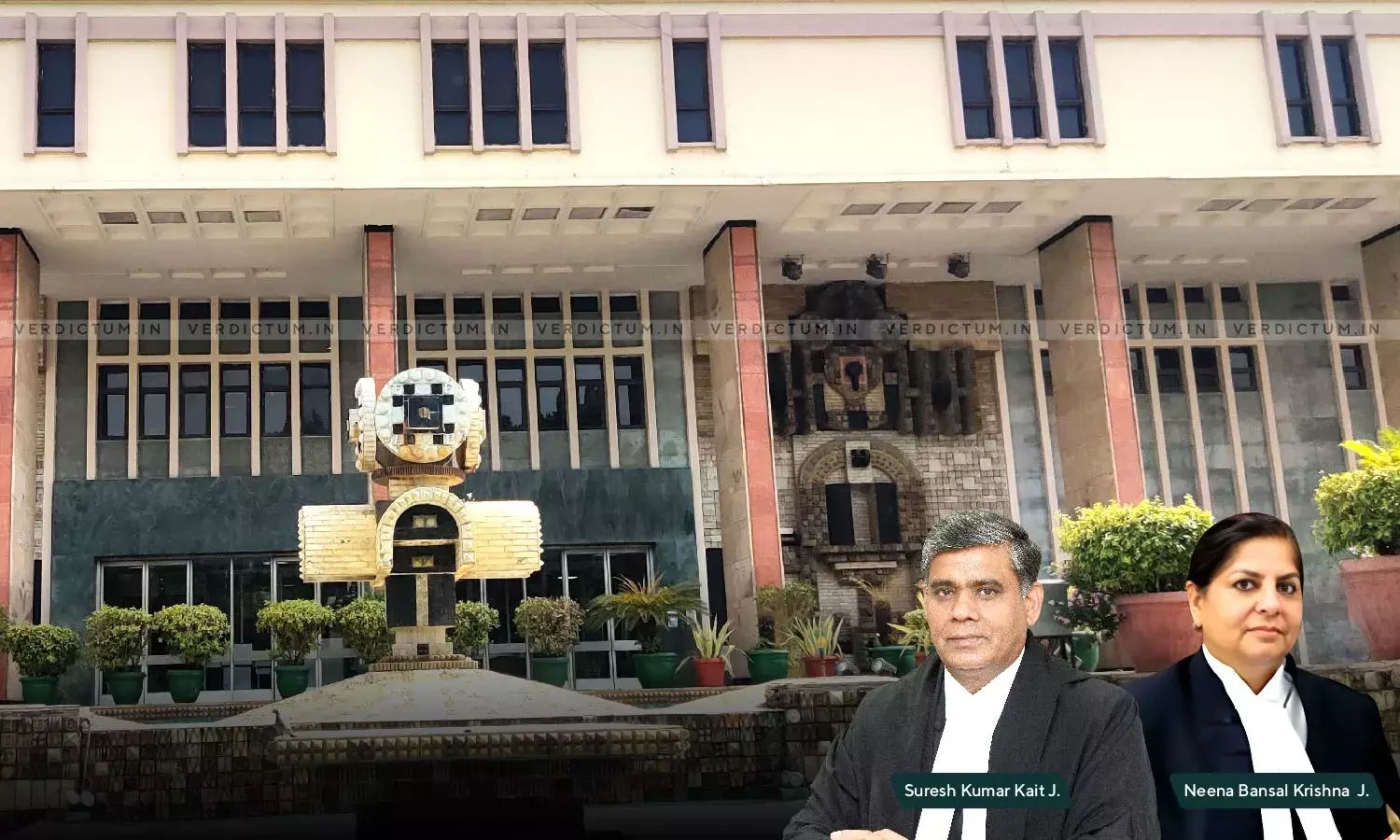Adulterous/Extra-Marital Relationship Of A Spouse Shouldn't Be The Sole Reason To Deny Child Custody Unless Proven To Be Harmful To The Child: Delhi HC
The Delhi High Court held that adulterous relationships or extramarital affairs alone should not be the basis to deny child custody unless it is proven that such relationships are directly harmful to the child's well-being.
The Court disposed of appeals filed by parents against one another seeking sole custody of their daughters.
“Adulterous Spouse is not equivalent to Incompetent Parent. Points for consideration in Divorce proceedings and custody matters may be co-related but are always mutually exclusive. Any adulterous relationship or extramarital affair of either spouse, cannot be the sole determining factor to deny custody of a child, unless it is proved that the adulterous relationship in itself is pernicious/detrimental/injurious to the welfare of the child”, the Bench comprising Justice Suresh Kumar Kait and Justice Neena Bansal Krishna observed.
Advocate Rashmi Malhotra appeared for the Appellant and Advocate S. D. Singh appeared for the Respondent.
The appeals under Section 19 of the Family Courts Act, 1984 (Act, 1984), along with Section 47 of the Guardians and Wards Act, 1890 (Act, 1890), are filed by both parties against the Judgment and Final Order. The order granted joint custody of the minor children with shared parenting. The matrimonial life was strained, leading to the separation of the parties. The mother alleged erratic and irresponsible behaviour by the father, abandonment, and the kidnapping of their children by the father's sister. The mother sought permanent custody of both daughters in her petition filed under Section 25 of the Act, 1890.
During the ongoing appeals, the Court had directed custody to the mother but later modified the interim arrangement, granting custody to the father. However, the Supreme Court, through an order stayed the custody order, maintaining the status quo. As a result, the children have remained with the mother, with visitation rights granted to the father.
“Therefore, considering that it is the interest and welfare of the children, which is the paramount consideration in such matters, the grant of permanent custody to the respondent/mother cannot be faulted. We do not find any reason to interfere in the grant of permanent custody to the respondent/mother”, the Court noted.
The husband contended that the wife's adulterous relationship disqualifies her from child custody, citing various legal precedents. The wife argued that she cared for the children during the husband's abandonment and was fully capable of meeting their needs, justifying her rightful custody.
The Court noted the father's disillusionment, which led to a 2.5-year separation from the family, but observed that this doesn't permanently render him unfit as a parent. Despite evidence of the mother's extra-marital affair, the Court emphasized that this alone doesn't disqualify her from custody unless it impacts the children's welfare.
Furthermore, the Court noted that the mother, despite personal affairs, demonstrated care for the children's needs. Both parents are financially and educationally capable, and there is no evidence of harm to the children's education during their time with either parent.
Referring to the case of Gaurav Nagpal v Sumedha Nagpal, [(2009) 1 SCC 42], the Court reiterated that a parent's love and suitability are not sole determinants for custody. The Court observed the children's preferences, and their ages (12 and 10), and noted that the mother was better positioned to understand their needs during puberty and adolescence.
“Children are not mere chattels nor are they toys for their parents. Absolute right of parents over the destinies and the lives of their children, in the modern changed social conditions must yield to the considerations of their welfare as human beings so that they may grow up in a normal balanced manner to be useful members of the society”, the Bench added.
Additionally, the Court noted the father's active involvement in the children's welfare, emphasizing that the strained relationship between the parents shouldn't be the sole factor in determining custody. The Court also reiterated the importance of considering the child's need for love, affection, and contact with both parents and modified the shared-parenting plan, granting regular custody to the mother but allowing the father day custody every second Sunday, shared school holidays, and special occasions.
The Court directed the parents to jointly make decisions about the children's education and future, with regular communication and a focus on the children's welfare. The Court emphasized that both parents should refrain from speaking ill of each other and work collaboratively for the children's well-being.
Accordingly, the Court disposed of the Appeals.
Cause Title: X vs Y (2024:DHC:782-DB)
Click here to read/download Judgment












